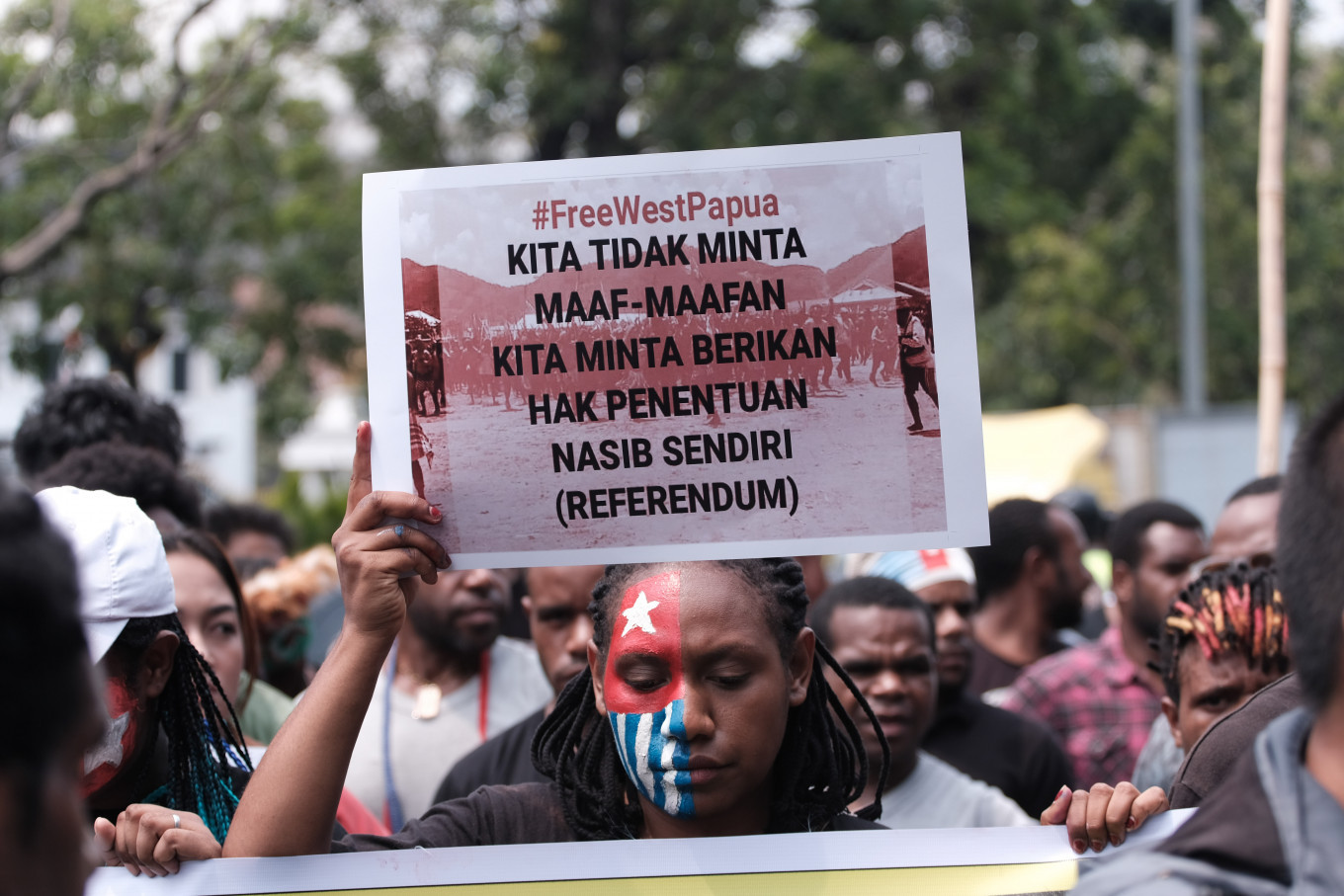Popular Reads
Top Results
Can't find what you're looking for?
View all search resultsPopular Reads
Top Results
Can't find what you're looking for?
View all search resultsLicense to silence
In fact, social media has contributed significantly to the spread of lies, fake news and hatred that lead to sociopolitical segregation, like what happened during recent elections in Indonesia and beyond.
Change text size
Gift Premium Articles
to Anyone
I
t looked like a happy ending for all when Big Tech finally bowed to government pressure to register under the country’s controversial licensing policy right before the deadline last week.
By registering with the Communications and Information Ministry, popular platforms like Zoom, Twitter, Netflix, Spotify, Facebook, Instagram, WhatsApp, Google and YouTube can continue to operate as electronic services providers (ESPs) in Indonesia, to the cheers of more than 190 million social media users. Big Tech’s accession to the government’s rule of the game, therefore, only shows that the Indonesian market is just too lucrative to resist.
The mandatory enrollment is part of Government Regulation No. 71/2019 on electronic systems and transactions, as a derivative of the draconian Electronic Information and Transactions (ITE) Law, which gives the government overarching surveillance powers.
The registered ESPs have to comply with the government’s content moderation rule, including taking down content that can "incite unrest" or "disturb public order" within 24 hours after receiving a ministry instruction to do so. When it comes to child pornography or messages supporting terrorism, removal must be done four hours after the ministry issues a warning.
As in the New Order era, the government today wields the authority to define, as it pleases, what constitutes incitement of unrest and disturbance to public order. Rather than risk a blockade or suspension of their operations, the registered platforms will simply resort to self-censorship and provide access to their users’ data to the government.
In fact, social media has contributed significantly to the spread of lies, fake news and hatred that lead to sociopolitical segregation, like what happened during recent elections in Indonesia and beyond.
For many in the country, the wounds resulting from the divisive contestations have remained unhealed.
Cybercrimes, cyberbullying and other side effects of the arrival of the digital era should have at least been mitigated had the social media platforms shown their responsibility to protect their users in return for the profits they have amassed.
Through the 2019 regulation, the government might offer a content moderation mechanism that would ensure everybody is safe when venturing into the digital world. But given the government’s proven track record of sacrificing democracy for security and political stability so far, such a noble purpose is just too good to be true.
The government was behind the internet blackouts in Papua and elsewhere under the pretext of public order, which was a blatant violation of the public’s right to information. Under the same justification, the police used force to secure access to the personal data of human rights activist Ravio Patra during an arrest without a warrant in April 2020, hours after his WhatsApp account had been hijacked.
At a time when democracy is regressing, chances are the Communications and Information Ministry would ask registered ESPs, including social media giants, to take down content critical of government policies or certain public officials and political bigwigs for the sake of public order. The government’s control gives these platforms no choice but to play it safe — at the expense of freedom of expression.
Surely, the regulation will grant the government the license to silence.











